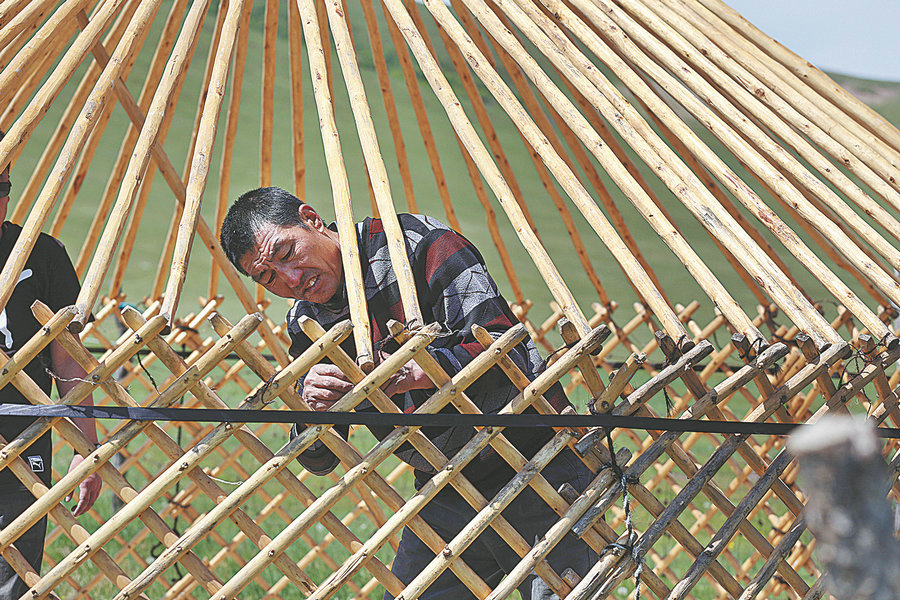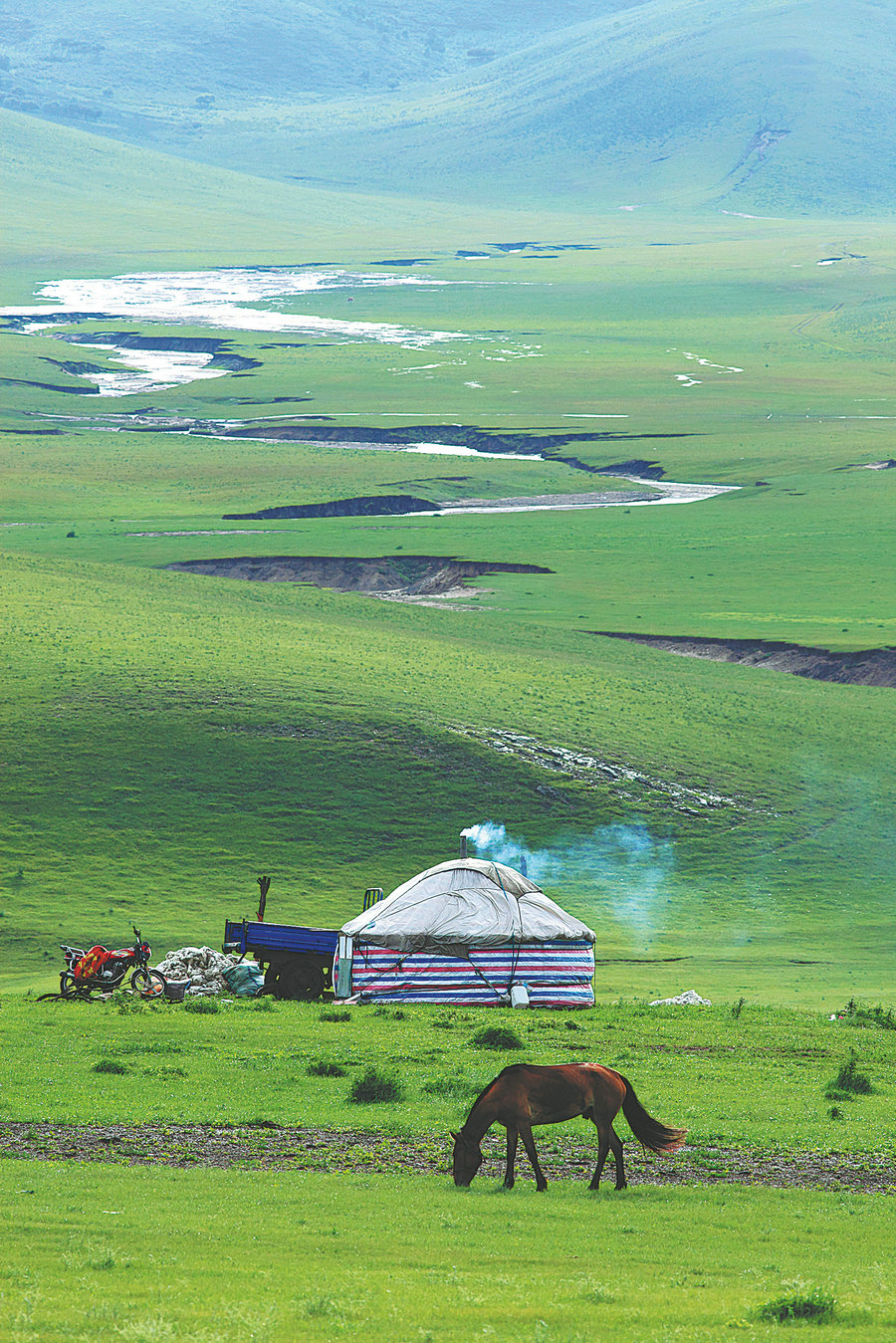

Future blueprint
The traditional culture-a nomadic lifestyle, horse racing, archery, and elaborate wedding ceremonies-is still evident.
"Making a campfire, we can enjoy a whole summer," Oyunbileg says. "We can both cook and provide heat. I'll climb the hill and pick some wild herbs and vegetables. Life is cozy in our spare time."
Naadam, the annual traditional Mongolian festival of sports and games on the grassland, has provided the herdsmen with the most enjoyable of summer memories.
However, as the older generation fades away, Oyunbileg is concerned about how much longer this cultural heritage will last. His parents no longer participate in the regular seasonal movement because of their age.
"But they still come to the summer camp from time to time for a sense of nostalgia," Oyunbileg says. "Sometimes, I also imagine my future years when I get old. I think it may be difficult for my children to stick (to this lifestyle)."

Bayart grew up in Bayan-Undur sum. He is now a student at a college in Hohhot, capital of the Inner Mongolia autonomous region, which is about 1,000 kilometers away. Since he left home to study, he has not joined the seasonal movement for several years, up until now.
Because of the COVID-19 pandemic, Bayart has been doing online courses at home, enabling him to follow his family again and relive his childhood experiences this year.
"The happiest thing in summer is to have a lot of rain," he says. "That means the grass will thrive.
"It's exciting to see the grand scene when all the goats and cattle move together," he says. "Sometimes, our livestock gets mixed with that of others. The animals can be hard to recognize, but neighbors will always find a way and return them. It still feels nice to recall those days.
"However, I think I'll look for a job elsewhere," he adds. "I also think it's important to bring our culture to more people around the world. My younger brother says he'll come back, though. If we can protect our heritage, our livestock will travel much further (in the world market)."
Ar Horqin is now one of the few places in Inner Mongolia where traditional seasonal movements are still preserved as they were in the old days. Getting GIAHS status will greatly improve people's consciousness of tradition and encourage more ideas for sustainable development, according to Wang Zhiwei, director of the agricultural heritage protection center of Ar Horqin Banner.
"Improving the income of herdsmen through ecological agriculture is also an important solution," Wang says. "Nomadic life needs to catch up with the times."
Oyunbileg likes shooting short videos of his nomadic lifestyle and picturesque scenes of his hometown to post on his social media accounts.
"I'd like more people to know about our hometown," he says. "I'm also thinking of running a homestay on the grassland for tourists. When more opportunities are created here to promote our culture, some of the young people will surely return."